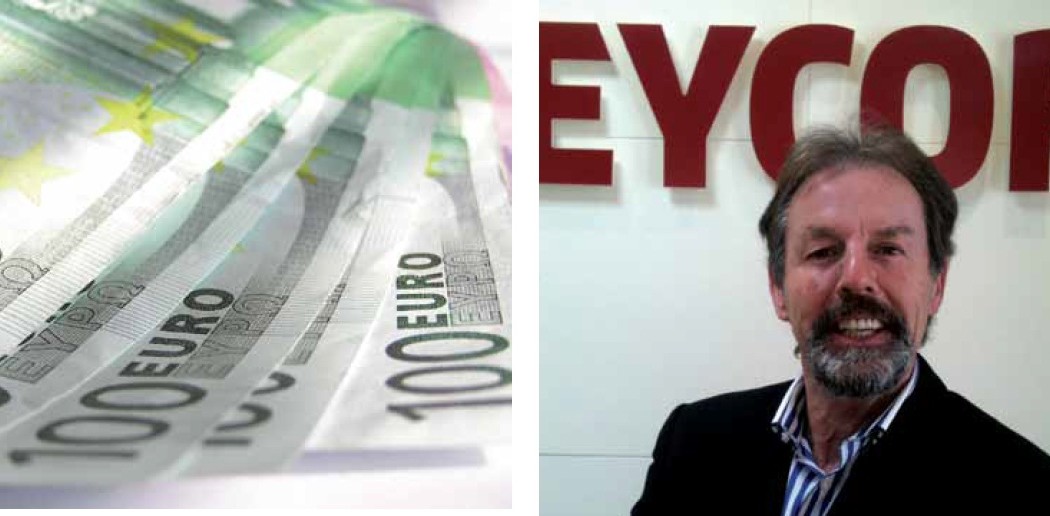Well, according to two very senior figures in the eurozone the answer is, yes. It seems we could be at the end of the eurozone crisis. Statements like this are intended to lift our spirits. However, data which is factual does not and, unfortunately, the data suggests the eurozone’s collective economy shrank for six straight quarters and unemployment hit 12.2 per cent, which is the highest since the euro was formed in 1999.
Declining investment and exports were the main drivers behind the currency bloc’s continued contraction. But there was some good news: May’s PMI rose to 47.7, up from 46.9, driven by an improving manufacturing sector. Germany managed to squeeze into expansionary territory with a PMI reading of 50.2. While the Spanish downturn eased slightly, its PMI of 47.2 was higher than it has been for almost two years..
After a cut of 25 bps in May, the ECB kept rates on hold at a record-low of 0.5 per cent at its June meeting. Despite recent speculation, President Draghi held back on further stimulus for now as, interestingly, the ECB still expects a recovery to take place later in the year.
Spain also has a decision to make and that is, does it ask for an extension of a further 12 months on the bailout fund available to it? Remember, of the €100 billion or so available, Spain has only used €41 billion to recapitalise its banks and must make a decision to apply for the extension pretty soon.
While all these events have been happening, the cost of government debt unfortunately has been creeping upwards and we have seen Italian and Spanish 10-year bond yields moving back towards the five per cent figure. The good news is there is a backstop and that is the ECB which, via the OMT, has pledged to support government debt. The bad news is the German constitutional court is challenging its legitimacy; we expect a decision sometime in the coming month or so.
In the UK, Mervyn King, governor of the Bank of England, has bowed out and was not able to convince his members to vote in favour of switching on the printing press again, so no further QE. The interest rate was also held so the focus will now be on his successor Mark Carney, who was to take up his new post on 1 July.
With the recent good weather in the UK there was also a bounce for the UK economy. At last business survey data showed that activity expanded at the fastest rate in more than a year in both the manufacturing and services sectors. The manufacturing Purchasing Managers’ Index (PMI) rose to 51.3, from 50.2 in April. Even the construction sector grew for the first time since last October. Even better news was that the services sector, which accounts for around 70 per cent of GDP, did manage to exceed expectations and hit 54.9, growing at its fastest pace for three years. House prices also showed an increase of 0.4 per cent in May as optimism filters through.
Banks, however, are still in the news. We heard the Cooperative Bank will need some support and has stopped lending to SMEs, and the PPI selling, or miss-selling, situation still rumbles on. We can expect to hear banks making larger provisions if a time deadline is not agreed.
Hey, don’t worry because it seems happier days are here again in the States and the old saying is, when the US sneezes the rest catch a cold – so maybe a recovery is in sight.
The housing market in the US has shown house prices were up 11 per cent year on year and, with the banking sector reporting a massive 16 per cent rise in net income for the last 12 months, you can understand why consumer confidence is moving forward. Mr Bernanke has been very firm in his approach to buying mortgage-backed securities, thereby adding to US confidence.
The US economy also added 175,000 jobs in May, just ahead of the 163,000 expected. Wouldn’t we like to see this number of jobs added across the zone?
Finally, Latvia becomes the latest country to join the euro – formally on 1 January 2014 – so look out from that date for a “mythical” character called Milda appearing on your coins.
Stephen Tiley is regional manager of Moneycorp.
If you are transferring money and want to get the best exchange rate, or simply have a chat to see how you can make your money go further, contact our preferred currency partner Moneycorp. They can be contacted on Tel. 952 587 657. When you contact them please let them know you saw this article in Home & Lifestyle.




